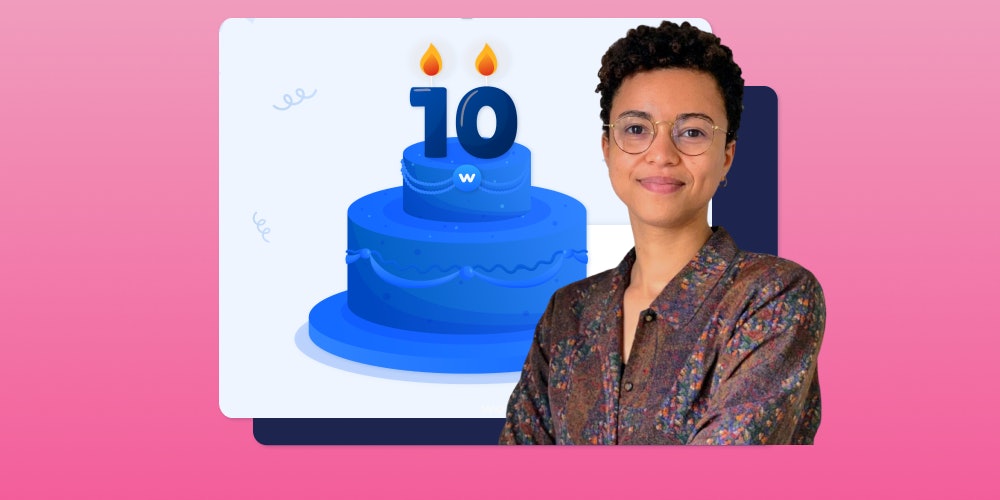
Boost the impact of your learning programs
Join us on February 3 at 4:00 PM CET 🇪🇺 or February 3 at 12:00 PM ET (9:00 AM PT) 🇺🇸 🇨🇦 for a group demo!
The art of the question: 10 years of learning with Wooclap
26.08.2025 • 3 minutes

This article explores how, in the age of AI, Wooclap has supported teachers and trainers in placing questions at the center of learning.
“Because that’s just the way it is”
When I was little, I asked a lot of questions. Really a lot. The kind that wore adults out and never settled for a simple “because that’s the way it is.”
Over time, I learned to choose my moments better… but the reflex stuck. Even today, I keep asking questions to the teachers, trainers, and learning leaders I work with. Not out of misplaced curiosity, but to understand how they bring questioning to life in their courses.
This has also been central to the co-construction approach that has guided Wooclap for the last decade: helping educators put the art of questioning back at the heart of teaching. Not the kind of question that traps or punishes. But the kind that engages, sparks reflection, and activates learning.
Because teaching isn’t just delivering content: it’s about making people want to ask questions. And sometimes, to answer them. But at the right pace. Some questions move things forward, some answers put people to sleep. The art is all in the balance.

Why teaching starts with questioning
Asking good questions is not obvious. In many training contexts, those who teach are first and foremost experts in their field: researchers, professionals in practice, seasoned practitioners. Their expertise is unquestionable. But pedagogy doesn’t improvise itself. Without guidance or training, it’s difficult to find the right levers to turn knowledge into active learning.
And yet, the right question, asked at the right time and in the right way, can change everything.It can spark attention, trigger discussion, connect concepts. It can also help gauge where a group stands: what they understood, what remains unclear, what needs to be revisited.
As neuroscientist Stanislas Dehaene points out: the brain learns when it is surprised. A good question creates a gap between what we think we know and what we discover, it’s a slight cognitive imbalance that captures attention and triggers learning.
As the committee that awarded him the Lewis Thomas Prize in 2025 summed up: “No surprise, no learning.”
It’s on this conviction that Wooclap was born. Not to digitalize teaching “for the sake of clicking,” but to offer a simple, intuitive framework where every question matters and becomes a lever for active learning. In other words, a tool that guides, sparks curiosity, and respects sound pedagogy.
And still to be questioned...AI
Over the past couple of years, one concern has kept coming up in conversations:
“Students are increasingly relying on AI, sometimes even cheating more effectively… but are they really learning anymore?”
Be the first to discover our AI Agents.
Don't miss a thing. Get instant updates directly in your inbox (1 email only).
AI is indeed making its way into everyday use but rarely within a clear, structured educational vision.
Debates about AI in learning highlight an obvious need: we must train for critical thinking, discernment, and the art of asking good questions. For teaching as much as for learning. AI can rephrase, summarize, generate and that’s valuable. But someone still has to question it, whether to create with it or to make use of what it produces.
That’s exactly where the gaps appear. AI generates content instantly, but speed doesn’t always mean relevance or pedagogical value. An automatically produced activity can serve as a starting point, but it needs to be refined, contextualized, and humanized. In short: questioned. And then used to question learners… and ideally, to get them questioning in turn.
This is the reasoning that led us to take a different path at Wooclap. Instead of automating the entire pedagogical process, we chose to design targeted AI-powered agents, built for concrete use cases, co-developed with educators and trainers. These agents are AI teaching assistants that support our users in Wooclap to promote more effective learning and/or make it easier to get started:
- Open question powered by AI → to group and synthesize open-ended answers, structuring discussion without losing richness.
- Brainstorming powered by AI → to automatically generate possible ideas, stimulating participation and encouraging critical thinking.
- Multiple choice powered by AI → to generate distractors and answer options, highlighting key concepts.
- Label an image powered by AI → to automatically detect and label areas of an image, saving time and making it easier to prepare interactive activities.

Ten years later, the same conviction
For ten years, Wooclap has grown alongside teachers and trainers around the world. From Duke University to Carleton, from Cegos to Vinci Immobilier, the same lesson keeps coming back: a good question changes everything.
And if AI is accelerating, if teaching practices are evolving, this truth remains:
An answer can be forgotten. But a well-asked question keeps opening new paths.
And this is only the beginning, we’ll be sharing more with you very soon.
Be the first to discover our AI Agents.
Don't miss a thing. Get instant updates directly in your inbox (1 email only).
A monthly summary of our product updates and our latest published content, directly in your inbox.



